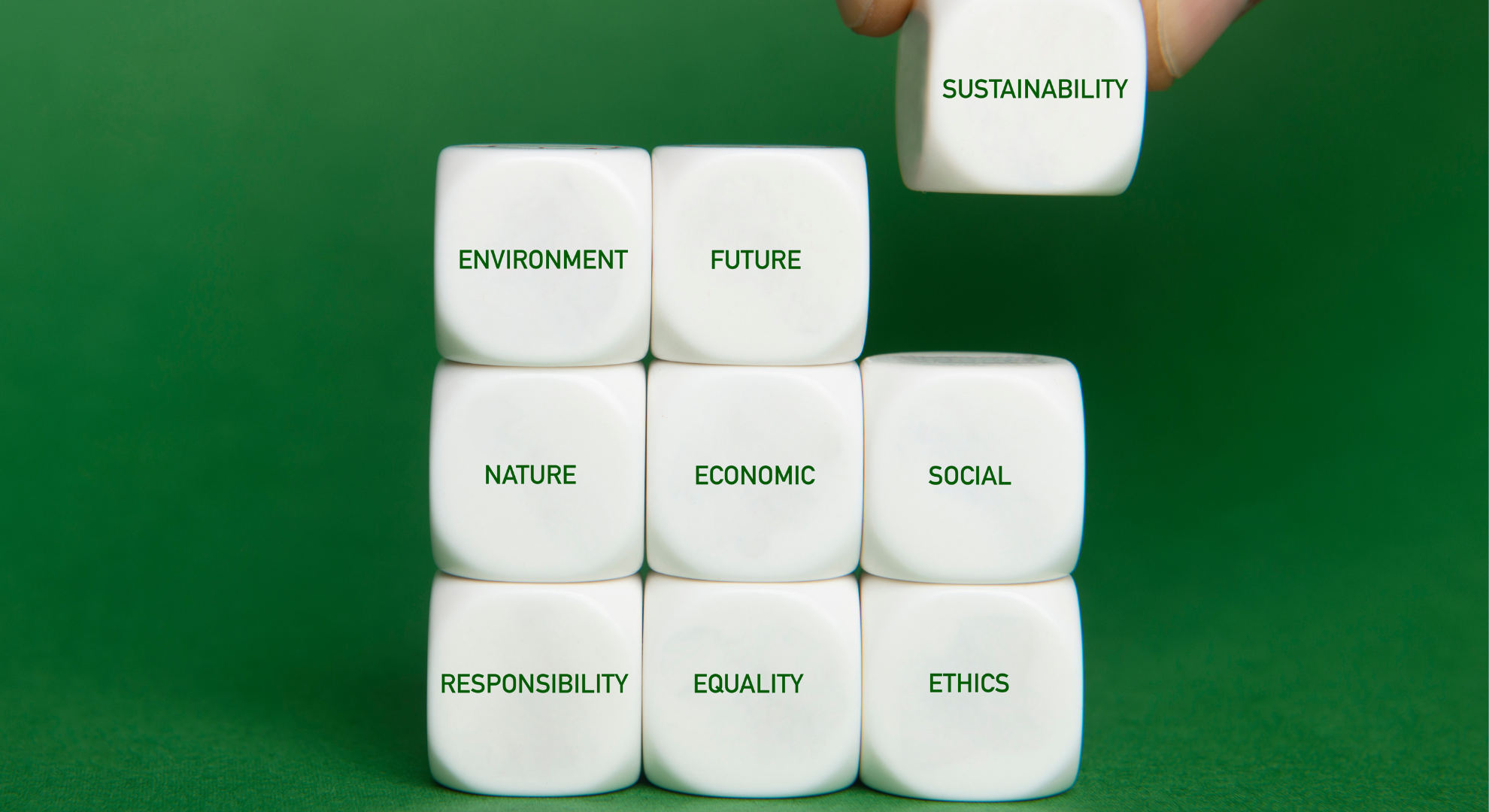Context
Along with the challenge of climate change and the need for companies to drastically reduce their environmental footprint, the question of evaluating the effectiveness of sustainability strategies has become a central concern for business leaders.
As a valuation technique, the international acronym ESG is used by the financial community to designate Environmental, Social and (Corporate) Governance criteria, which generally constitute the pillars of sustainability extra-financial analysis.
Relying on ESG standards and frameworks (GRI, SASB, PRI, etc.), various extra-financial rating agencies have built evaluation grids and metrics along with their own methodology to provide an integrated set of assessment tools to companies.
Based on the information declared by their customers, coupled with other sources such as those of NGOs, trade unions, media, or government entities, these rating agencies can assess the ESG practices of a company regarding the environment and its stakeholders (employees, partners, subcontractors, customers, investors).
Definition
Created in 2007, EcoVadis provides a collaborative web-based rating platform for assessing the sustainability performance of organizations worldwide.
The rating measures an organization’s sustainability management system through 21 criteria focused on four key performance areas:
- Environment (product impact from production processes and product use)
- Labor and human rights (HR management practices, human rights)
- Ethics (corruption, anti-competitive practices)
- Sustainable procurement (supplier environmental and social practices)

EcoVadis today
Each year EcoVadis publishes a “Business Sustainability Risk and Performance Index”, providing comprehensive snapshots of Global Supply Chain ESG performances and evolution.
The 2021 fifth edition was based on data derived from over 72,000 EcoVadis ratings conducted on more than 46,000 companies, covering the period 2016-2020.
Only 7% of rated organizations’ scores are above 64.
Moreover, EcoVadis reveals that “with an overall score of 53.9, companies with multiple EcoVadis assessments outperform the global average of 47.7” meaning that companies that have been assessed by EcoVadis and which regularly use the engagement platform display a steady increase in overall scoring.
Recent developments
In 2020 EcoVadis raised 200 million dollars (180 million euros) from CVC Capital Partners to integrate new technical developments and reinforce its presence in the United States and Asia markets.
In 2021 EcoVadis launched its new “Carbon Action Module” toolbox dedicated to global supply chains.
This module may inform purchasing managers – and more broadly all departments involved in the fight against climate change – about suppliers’ GHG emissions management practices.
Limits of EcoVadis
The EcoVadis score is not a certification but a worldwide trusted notation resulting in a ranking.
The assessment process doesn’t include an audit or an on-site verification, only a desk review of the questionnaire and documentation provided.
To learn more about EcoVadis...
Related articles
Global Reporting Initiative: What It Is and How to Do It
GRI stands for Global Reporting Initiative, and is an international independent standards organization that promotes sustainability reporting through the development of global standards for corporate responsibility, including environmental, social and governance (ESG) reporting...
Impact – What is Impact
The Corporate Sustainability Reporting Directive (CSRD) requires large businesses and SMEs to produce annual reports on their environmental and social impacts.
CSRD – What is CSRD
The Corporate Sustainability Reporting Directive (CSRD) requires large businesses and SMEs to produce annual reports on their environmental and social impacts.
Corporate Sustainability Reporting Directive: All you need to know
The Corporate Sustainability Reporting Directive is an EU regulation that will have a huge impact on how organisations report their environmental, social and governance (ESG) performance...
Sustainability – What is Sustainability
The GRI is an international independent standards organization and currently issues one of the most well-known standards for ESG reporting (GRI Standards).
Discover the latest Sustainability Recent Developments to improve your companies
Sustainability is a concept that evolves due to pressing sustainability challenges, worldwide issues, and its own concept limits. New concepts have emerged to think further and respond better to all the world’s current challenges...
GRI – What is the Global Reporting Initiative
The GRI is an international independent standards organization and currently issues one of the most well-known standards for ESG reporting (GRI Standards).
What is Materiality and Why it matters in business
Materiality is crucial for sustainability reporting because it allows companies to focus on the most important aspects of their sustainability efforts. A company can choose to report on all aspects of its sustainability program, but this would be extremely time-consuming and would probably not be very useful for investors and other stakeholders...
Materiality – What is Materiality
ESG is an acronym for Environmental, Social, and (Corporate) Governance. It refers to the non-financial factors of a corporation’s impact.
Impact-washing – What is Impact-washing
Impact washing can be defined as any marketing claim about a product/good/service/funds triggering a change in the real economy that cannot be supported by evidence.
ISO 26000 – What is ISO 26000
ESG is an acronym for Environmental, Social, and (Corporate) Governance. It refers to the non-financial factors of a corporation’s impact.
B Corp – What is B Corporation certification
ESG is an acronym for Environmental, Social, and (Corporate) Governance. It refers to the non-financial factors of a corporation’s impact.
The concept of impact on social and environmental issues and its implication for companies
Impact measurement is a powerful tool for companies to gauge their impact on social and environmental issues. In this article, we will discuss the concept of impact, its implications for organizations, and how it can be measured...
The most important and recent developments of ESG (Environmental, Social and Governance)
Being a B Corporation is not just about making profits and creating wealth for a company, it is a way of creating a more sustainable future for society! Discover our article about B corps and its benefits here...
The process for an enterprise to get the B corp certification
Becoming a B Corporation is an ambitious undertaking. This article will guide you through the steps required to become a B Corporation…
CSR – What is Corporate Social Responsibility
CSR is centered on the idea that businesses have a responsibility to benefit the society that they exist within—a broader view than the one that says businesses’ only responsibility is to produce economic profit.
What is a B Corporation: what this means and its benefits for companies
Being a B Corporation is not just about making profits and creating wealth for a company, it is a way of creating a more sustainable future for society! Discover our article about B corps and its benefits here...
The guide to EcoVadis certification: frequently asked questions
This guide will take you through the steps of the EcoVadis Certification process, and explain what is involved in becoming a certified business...
The implications of ISO 26000 for companies
ISO 26000 is a standard providing direction for the application of social responsibility to the activities of an organization. But what does this mean? And how can organizations use it to create better and more sustainable business practices? Let's talk about it…
What is the meaning of CSR (Corporate social responsibility) and how to adopt it?
A Corporate Social Responsibility strategy refers to an organization's active consideration of the effects its activities have on the environment, employees, customers, and suppliers. Let's look at how your company could adopt such a program...
ESG – What is Environmental, Social and Governance
ESG is an acronym for Environmental, Social, and (Corporate) Governance. It refers to the non-financial factors of a corporation’s impact.
4 reasons companies should adopt CSR, Corporate social responsibility
CSR is all about managing a company’s externalities while creating sustainable value for stakeholders and continuous innovation for the business. Let's break that down and explore why...
Carbon disclosure project reporting: what is it and how does it work?
Read our article about The Carbon Disclosure Project (CDP), an extra-financial questionnaire that collects data on companies’ environmental practices and performance...
What are the differences between Corporate Social Responsibility (CSR) and Environmental Social Governance (ESG)?
These terms are both used to describe an approach for businesses to integrate social and environmental factors into their governance policies, strategies, processes, and programs. Yet, they're not the same. Let's explore their key differences...
Why is ESG (Environmental, Social and Governance) important for a business
ESG (environmental, social and governance) can help businesses make sound decisions, and investors achieve better long-term returns. Let's discover how...














